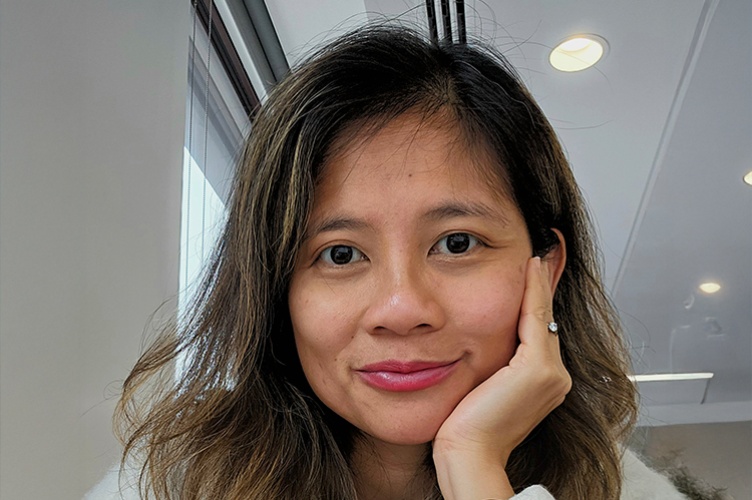How one ESCP alumna’s EMBA journey became a lived lesson in authentic, human-centred leadership.
When Nurul Tajuddin was accepted to ESCP’s Executive MBA programme, she had already spent two years preparing—gaining support at work, securing buy-in at home, and aligning finances. Then, just as the plan was in motion, life added a twist: she learned she was pregnant.
Rather than defer, she chose to move forward, backed by a shared commitment at home and a clear professional goal. “I knew the Executive MBA was key to unlocking the next phase of my career,” she says. It was her path to a more global perspective and the strategic confidence she needed to step into international leadership roles.
That choice proved pivotal. Now Programme Lead for Global People Transformation and Pay Transparency at WPP, she leads an initiative that impacts over 20,000 people across numerous countries, cultures and languages. Nurul shares how the EMBA became a powerful lesson in adaptive and inclusive leadership.
Designing her ESCP EMBA journey
For professionals with demanding lives, the EMBA’s flexibility is a defining strength. For Nurul, it was indispensable. She and her husband, both in demanding full-time roles, used seven months of shared parental leave to focus on what she calls their “mini adventure.”
That included studying in Berlin, London, Madrid, Paris and Turin, with additional modules in Brussels, Austin and Singapore. “ESCP’s flexible course structure made it possible to combine multiple modules per trip,” she says.
Balancing work, study, and a newborn was never going to be easy. But one of Nurul’s biggest challenges was internal: reconciling her roles as a mother, professional, student and partner. “I often wrestled with the perception that you couldn’t be both an ambitious leader and a good parent.”
That tension led to a breakthrough. “I quickly realised I couldn’t — and didn’t need to — separate those identities. My family travelled with me to every seminar. Far from being a liability, their presence made the experience richer.”
Her cohort also welcomed it and encouraged her. “They reminded me that the barriers I feared were often the ones I imposed on myself.” What began as an academic pursuit soon became a lived exploration of what human-centred leadership could be.
The value of a supportive community
At every stop, Nurul and her family leaned on each other and on the community they found at ESCP. “The ESCP community became an extension of our family. The staff were consistently supportive—even finding private rooms for meals or feeding when needed.”
One moment stands out. At the Paris campus, when security hesitated to allow her baby in for feeding, the late EMBA Director Inès Khedhir intervened personally. “That moment still moves me. It showed me that at ESCP, we’re seen as individuals — not just students, but people with families, needs and lives beyond the classroom.”
Those small gestures, she says, embodied the empathy and inclusion that now shape how she leads.
Nurul’s leadership style today reflects a shift that began years earlier. In her twenties, she launched a farm-to-fork export startup, raised £2 million in venture capital and poured herself into the business. “It wasn’t a commercial success,” she says. “And my relationships suffered. That experience taught me what really matters.”
From that experience, she learned to lead in a different way. In Austin, she and her family arrived early for her module. “We carved out time to explore the city together. A small gesture — but a reminder that my family isn’t just supporting the journey. They’re part of it.”
For her, leadership is no longer about sacrifice or separation, but about integration, empathy, and sustainability.
A transformative lesson in leadership
Today, Nurul leads transformation programmes on a global scale. The EMBA, ranked third in the world by the Financial Times, gave her the skills and network to do so — but perhaps more importantly, it reshaped how she thinks about ambition, balance and partnership and how this has influenced her approach to leadership.
She credits the programme with shaping a leadership style that builds trust fast. Leading the global Workday HR and Finance transformation, she used that approach to unite diverse stakeholders and bring transparency to complex decisions.
These experiences have reinforced Nurul’s conviction that the next era of leadership will be defined by empathy, integration, and the courage to bring one’s whole self to the table. She believes that sustainable transformation happens when leaders unite ambition with humanity, turning complexity into collaboration and creating impact that lasts.
Relevant Link
Campuses

